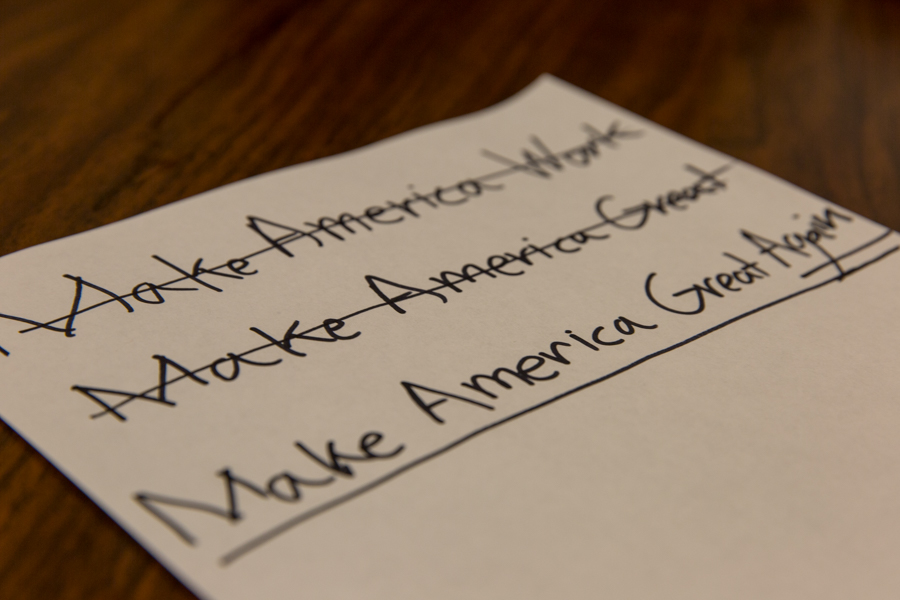
Politicians, no matter what policies they promote, strategically use their words to get people to like them. This may sound obvious, but much of the population would be surprised to learn that politicians manipulate words and phrases to sway peoples’ opinions and position on various issues.
When one repeats a word multiple times, it may come off as redundant, but when politicians are repetitive, they are remembered and noticed for what they say. Politicians create a brand for themselves by standing by a certain position and sticking to it. You may remember Bernie Sanders for questioning the “grotesque levels of income inequality in this country.” He is not going to be remembered for something he says for 10 seconds. He gains traction with supporters and detractors alike by letting people hear his message over and over again. Politicians and their speechwriters know what people want to hear. One of the first goals of a politician is to get elected, and that means getting noticed and getting people to adopt their points of view.
Politicians use appealing language to get a majority of Americans to stand with them and to make sure supporters do not question them. If more of the population could see through the flowery language that the current presidential candidates are utilizing, conversations about the election could be far more constructive.
The way in which politicians and mass media use language affects mainstream discourse. Prior to 2014, the term “undocumented immigrant” was rarely used. Afterwards, presumably through campaigns by various activist groups to encourage people to stop using the term “illegal” when referring to immigrants, many politicians have adopted the term “undocumented.” Politicians, whose repetitive language frequently appears in the media, influence what Americans say at the dinner table. That the term ‘illegal’ is now largely taboo when referring to immigrants is not just due to activists, but also to politicians who have struck the word from their vocabulary.
The atmosphere of hope and change that swept America in 2008 would not have happened if then Senator Barack Obama did not use his language in a manner that touched so many. A lot of people may still remember the town halls and rallies that Obama attended prior to the 2008 presidential elections. His key slogan, “yes we can,” and his attempt to bring regular people into the political process were revolutionary. As he toured America, bringing hope to economically struggling Americans, Obama and his campaign touched the hearts and minds of so many in a way that very few politicians had done before. It seemed that people believed in Obama’s words so much that they believed economic relief would descend upon the country on day one of his presidency. Despite the tough times predicted after the 2008 election, Obama’s positive, charismatic attitude united Americans under the “yes we can” mentality.
What politicians say, the way they say it and the words they use affect how we view them, their policies and our own beliefs. Your own opinion of different politicians may range solely on their speech. You won’t listen to someone talk about something if you are not engaged by the language that they are using. For example, a professor or a banker will use Bernie Sanders’ words about wealth inequality or Ted Cruz’s remarks on ‘Islamic extremism.’ The political debates that happen on television between politicians are reenacted between folks in their daily lives. Phrases and terms used in this very column include slight tidbits of politicians’ arguments or words that have impacted my own beliefs.
You can reach Justin Chau at jtchau@ucdavis.edu. Any questions, comments, and concerns are welcome.







